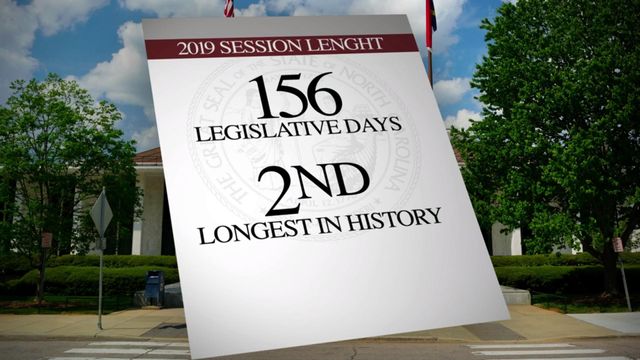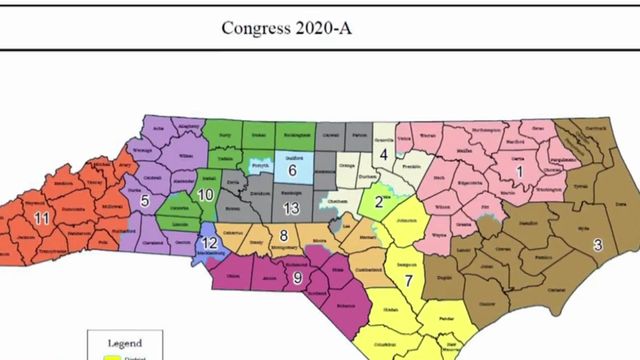General Assembly OKs new congressional district map
The House and the Senate voted along party lines this week to approve a new map for North Carolina's 13 U.S. House districts.
Posted — UpdatedA similar challenge to state House and Senate districts led to lawmakers redrawing those maps in September.
Although the lawsuit over the congressional map is still pending, the judges suggested that lawmakers redraw the districts quickly so that the March 3 primaries could remain on schedule. Candidate filing for the primaries starts Dec. 2.
The court still has to sign off on the new map, however, which would make it the third congressional map North Carolina has used since 2012.
Lawmakers have spent much of the last two weeks reworking district lines, creating close to 20 options. They set rules to not consider the race or voting histories of residents in carving up the districts, although House Minority Leader Darren Jackson said Thursday that Republican map-makers are already so familiar with such data that they could easily redraw districts to suit their political needs without consulting any spreadsheets.
"This is a solid 8-5 map," said Jackson, noting that it would favor eight Republicans and five Democrats. "It's not competitive in any way. It's not fair."
There are 10 Republicans and three Democrats under the current map, drawn in 2016 after a federal court ruled a previous map was illegally racially gerrymandered.
Rep. David Lewis, R-Harnett, who chairs the House Redistricting committee and has had a hand in drawing all three maps over the last eight years, fumed at Democrats' suggestions that he and other Republicans had schemed to hold onto political power through the new map.
"What do you consider a fair map?" Lewis asked repeatedly on the House floor.
"I will not be impugned as having drawn this map for any kind of partisan gain, which, when you accuse it of being a gerrymander, is exactly what you are doing," he said during a Thursday morning committee hearing.
But Rep. Deb Butler, D-New Hanover, didn’t back down.
"Forgive me if you take umbrage with it, but that is what we’re here trying to fix," Butler said during the committee meeting. "Not to talk about it is fool’s play, so I apologize if you’re offended, but that’s the way that is."
Senate Democrats likewise balked at the process during Friday debates, saying the GOP had "baked in" partisanship by ensuring that no incumbents would be drawn into the same district and have to run against each other.
"This map is not even close to a nonpartisan, compact map," said Sen. Natasha Marcus, D-Mecklenburg. "There's no reason to support this flawed process and gerrymandered map."
Sen. Jerry Tillman, R-Randolph, basically told Democrats to quit whining and deal with the fact that Republicans have the power to draw the maps as they see fit.
"We're only doing exactly what you all did for 140 years," Tillman said. "This is a partisan process, folks. I'm sorry you don't like it."
Other Senate Republicans were quick to point out Tillman wasn't on the committee that drew the new map.
Under the new map, all of the 2nd Congressional District and part of the 4th Congressional District would be in Wake County. Also, Cumberland County would not be split between districts, as it is now.
A national Democratic group that has filed lawsuits over what it considers gerrymandered legislative and congressional maps has already vowed to challenge the new map in court.
Related Topics
• Credits
Copyright 2024 by Capitol Broadcasting Company. All rights reserved. This material may not be published, broadcast, rewritten or redistributed.






